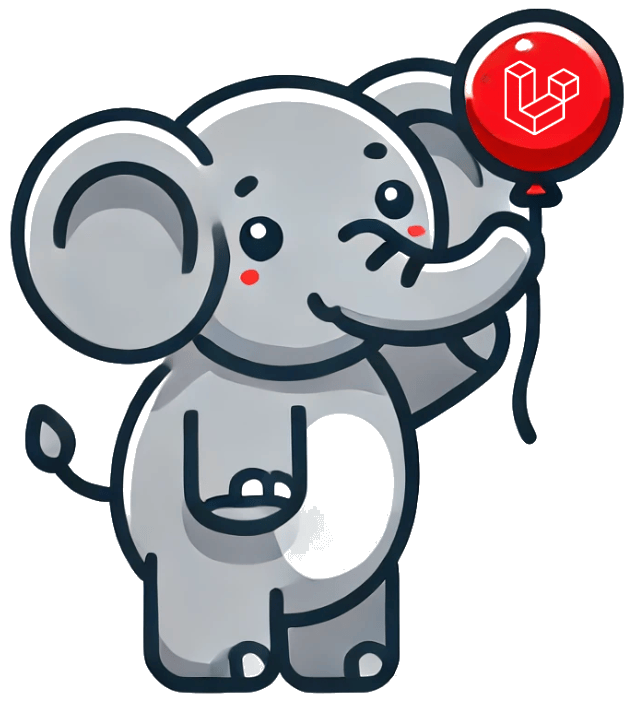Laracon AU 2018
Sydney, AU
12 talks
Resisting complexity
In this talk, Adam Whalen discusses how to simplify Laravel code by rethinking object-oriented programming patterns. He argues that methods should be viewed as affordances (things you can do with an object) rather than abilities (things an object can do to other things). Through practical examples from a course platform codebase, he demonstrates how this mindset leads to cleaner code by eliminating unnecessary service/manager classes, properly placing methods on the objects they operate on, and knowing when to use simple functions instead of classes.
A real-life journey into the opinionated world of 'utility-first' CSS
Simon Vrachliotis shares his journey of refactoring a website's CSS using utility-first CSS methodology. He describes how he transformed from being skeptical of utility classes to becoming a strong advocate after successfully refactoring an entire website while camping with his family. The talk covers the benefits of utility-first CSS, including reduced CSS anxiety, faster development speed, and better maintainability, while drawing parallels to how Dick Fosbury revolutionized high jump technique despite initial skepticism.
Turning stories into software
Donna Benjamin presents 'Turning Stories into Software', discussing how to effectively transform user stories into working software through team collaboration. She covers the origins of user stories, the INVEST criteria for good user stories, team dynamics, and practical examples of implementing features like social sharing in web applications.
Goodbye, Silicon Valley: The Rise of the Indie Way
Kate Kendell shares her journey from Silicon Valley to becoming an advocate for the 'indie' way of building companies. She discusses the problems with traditional VC-backed startups and presents an alternative approach focused on sustainable growth, profitability, and maintaining control rather than chasing exits and valuations. The talk explores how companies can transition from VC-backed to indie models and highlights successful examples of indie companies.
Building a complex product while scaling a team and a business on Laravel
The speakers from Figured, a financial management tool for farmers, share their journey of scaling a Laravel application from a small startup to an enterprise-level solution used by major banks across multiple countries. They discuss how Laravel helped them maintain simplicity while handling complex financial data, and share insights about team growth, technical decisions, and maintaining code quality at scale.
Understanding git - even the scary parts
A talk about Git version control, focusing on the speaker's journey from being afraid of Git commands to becoming proficient with advanced features. The speaker shares experiences working at different companies and explains core Git concepts like storage, branches, merging, and rebasing while demonstrating practical examples through a command-line demo.
Introducing Telescope
Taylor Otwell presents Laravel Telescope, a new debugging and monitoring tool for Laravel applications. He demonstrates its various features including request monitoring, query logging, job tracking, and error handling. Telescope provides a clean interface for viewing application logs, cache operations, and email previews, with both light and dark modes. The tool is particularly useful for local development but can also be deployed to production with proper authorization and filtering.
Abusing Laravel for Fun and Profit
David Hemphill gives a talk about creative ways to use and reuse Laravel's built-in components for solving common development problems. He shares approaches for handling front-end filtering, database testing, data access patterns, and model scheduling by leveraging existing Laravel features like pipelines, database seeders, form requests, and the scheduler rather than reaching for third-party packages.
Level up with a Microservices architecture
The speaker presents a practical approach to implementing microservices architecture while avoiding common pitfalls by initially deploying as a monolith. He shares experiences from his time as CTO at Glo, describing how they structured their codebase into independent packages following domain-driven design principles, while maintaining the ability to later transition to true microservices. The talk focuses on achieving the benefits of microservices architecture (like loose coupling and clear boundaries) without immediately taking on all the operational complexity.
Modelling business requirements with Eloquent
The talk discusses how to effectively model business requirements using Laravel's Eloquent ORM while following domain-driven design principles. The speaker demonstrates how to create clean, maintainable code by properly encapsulating business logic, using domain-specific language, and avoiding leaky abstractions. Using an award management system as an example, he shows how to evolve from simple CRUD operations to more complex domain models while keeping the code aligned with business terminology and requirements.
Migrating to Laravel: Managing the ick
The talk discusses strategies for migrating legacy CodeIgniter applications to Laravel. The speaker shares his approach of gradually refactoring code while maintaining functionality, using Laravel Torch for eloquent models, implementing API endpoints, and leveraging Laravel Dusk for testing during migration. He emphasizes the importance of managing stakeholder expectations and using proper data modeling during the transition.
Patterns that pay off
Matt Stauffer discusses software design patterns and their appropriate application in Laravel projects. He emphasizes that patterns should be used thoughtfully and only when needed, not blindly applied everywhere. The talk covers both process patterns and code organization patterns, with a focus on practical implementations that provide real value rather than unnecessary complexity.
